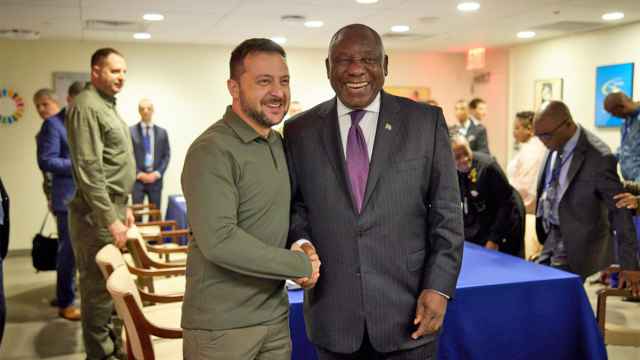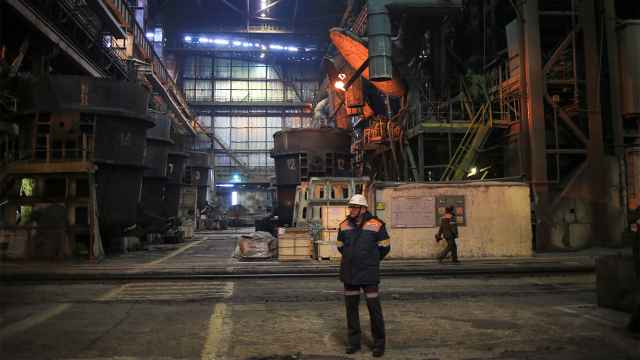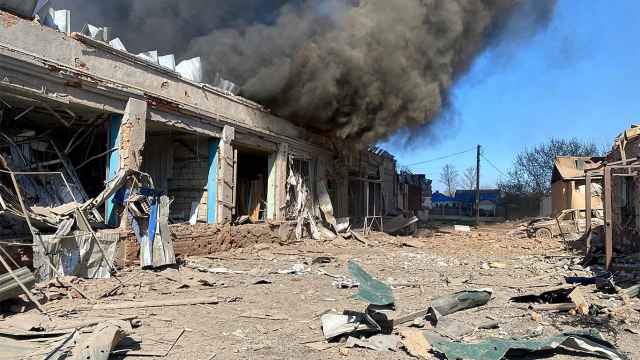Dmitry Rogozin, Russia's leading self-proclaimed patriot and its former envoy to NATO, was appointed last month as deputy prime minister in charge of overseeing the defense industry. Although his appointment came as a surprise to most observers, there had been several signs that this was coming.
For the past several months, Rogozin has made a number of public statements on defense and taken a more public stance in support of United Russia prior to the State Duma elections. This suggested that Rogozin would soon be moved from his post in Brussels to a defense-related position in Moscow.
At the same time, however, it was generally expected that the deputy prime minister appointment would go to Russian Technologies head Sergei Chemezov or Defense Minister Anatoly Serdyukov, both of whom understand industry-related questions,
The defense industry views Rogozin's appointment as primarily a political move on the eve of the March presidential election. The theory is that Rogozin's nationalist positions could help attract some of the "patriotic" electorate to Prime Minister Vladimir Putin's presidential bid. That maneuver is somewhat similar to the appointment of Alexander Lebed, a decorated general and prominent nationalist, to head the Security Council between the first and second round of voting in the 1996 presidential election.
But Rogozin is not Lebed. Despite his flamboyance, Rogozin lacks the political weight that Lebed held in 1996, when he finished third in the first round of the presidential vote. But more important, many former Rogozin supporters perceived his departure from Rodina for the diplomatic post in Brussels with NATO as a betrayal of their cause, and his latest appointment as deputy prime minister makes him look even more like a collaborationist and careerist. As a result, Rogozin's appointment will more likely take away more votes for Putin than he will add.
The Kremlin could have better pleased the army and defense industry if it had appointed a Soviet-era general manager from among the new state holding companies that appeared in the wake of the large-scale nationalization of military industries in the 2000s.
In the near future, it is unlikely that tensions between defense contractors and the Kremlin will reach a crisis level as they did in 2011, when the government issued long-term defense industry contracts totaling hundreds of billions of rubles. But a consensus on pricing policy was never reached in most cases, and the majority of contracts were awarded to satisfy demands made by the military rather than defense-industry needs. That means the grounds for conflict remain.
This forces Rogozin to either play the role of arbitrator or to choose sides. If he is forced to pick a favorite, he will mostly likely side with the contractors. In either case, Rogozin finds himself in a difficult situation. He wields only limited authority in the current bureaucratic system. Ministries have control over budgets, while the deputy prime minister can play a significant role only if the prime minister is part of the same political clan or interest group — as is the case with Deputy Prime Minister Igor Sechin and Energy Minister Sergei Shmatko.
But none of those conditions exist at present. Defense Minister Serdyukov and, to a lesser extent, the probable future Industry and Trade Minister Denis Manturov, both have strong and independent relationships with Putin — the likely future president. Both Serdyukov and Manturov are part of powerful political clans — Serdyukov is closely linked to First Deputy Prime Minister Viktor Zubkov and Manturov to Chemezov. Getting into conflict with either of them would be suicidal for Rogozin the bureaucrat. Arbitrating between the contending camps will require first-rate political skills and flexibility.
Rogozin clearly tends toward the flamboyant and outspoken style of Liberal Democratic Party leader Vladimir Zhirinovsky, and only time will tell if he has the necessary qualities for this job.
Konstantin Makiyenko is deputy director of the Moscow-based Center for Analysis of Strategies and Technologies.






